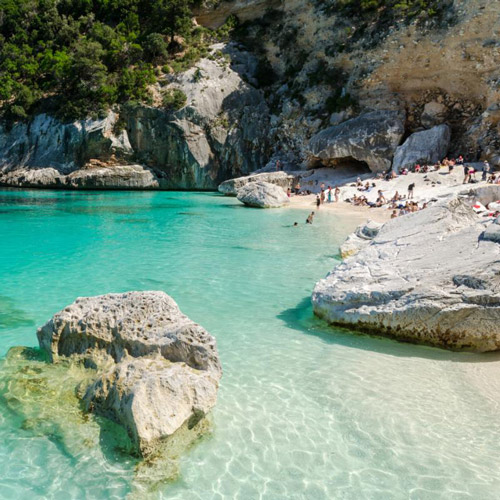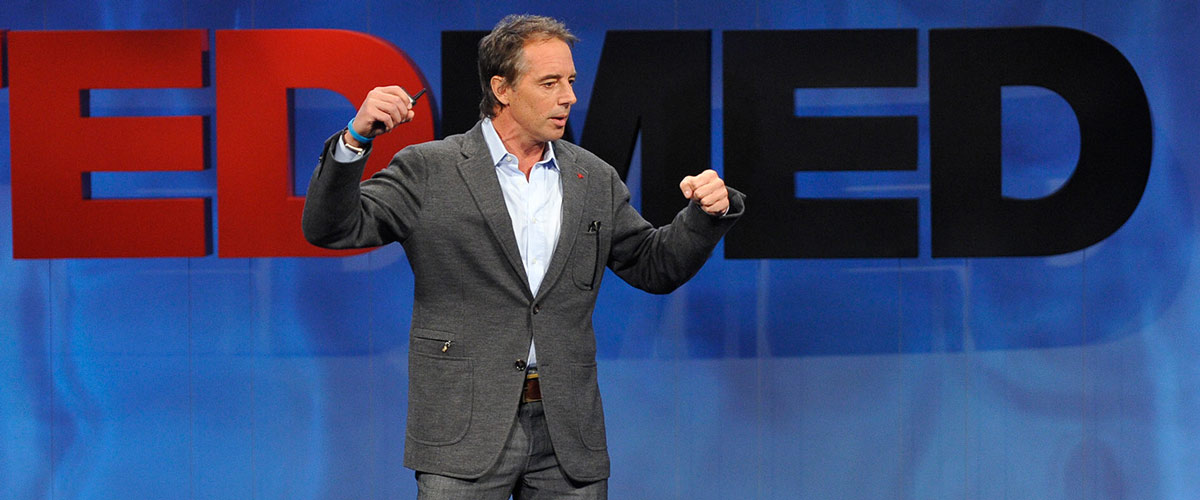Almost everyone is in search of the secret to living a longer, healthier life. In the hopes of finding some answers, New York Times bestseller Dan Buettner and a team of experts traveled to what they call Blue Zones—places where people live the longest lives at optimal health.
“Something called the Danish Twin Study established that only about 10 percent of how long the average person lives, within certain biological limits, is dictated by our genes.” Says Buettner in his TED talk How to Live to be 100+. “The other 90 percent is dictated by our lifestyle. If we can find the optimal lifestyle of longevity we can come up with a de facto formula for longevity.”
So what is the lifestyle of longevity? A lot of Americans usually turn to diet, exercise and medicine for longevity. But according to Buettner’s studies, the key to a long life is the way we communicate with others.

The first Blue Zone is located about 123 miles from the coast of Italy, on the island of Sardinia. There are 10 times more centenarians there than in America. They are living longer, but they are also aging with ease. “102 year olds still ride their bike to work, chop wood, and can beat a guy 60 years younger than them [in an arm wrestle].”
An analysis of their diet revealed it to be plant based. They eat natural foods just like their ancestors. “They came up with an unleavened whole wheat bread called carta musica made out of durum wheat, a type of cheese made from grass-fed animals so the cheese is high in Omega-3 fatty acids instead of Omega-6 fatty acids from corn-fed animals,” Buettner says. “And they drink a type of wine that has three times the level of polyphenols than any known wine in the world. It’s called Cannonau.”
Their social lives proved most influential in their longevity. The elders are treated with utmost respect. “Here in Sardinia, the older you get the more equity you have, the more wisdom you’re celebrated for,” says Buettner. “You go into the bars in Sardinia, instead of seeing the Sports Illustrated swimsuit calendar, you see the centenarian of the month calendar.”
The second Blue Zone is on an island name Okinawa, 800 miles away from Tokyo. When it comes to their diets, their portions are small, with few calories. Similar to the Sardinians, they eat a plant-based diet and consume 8 times more tofu than Americans. They also have a unique diet known as the Hara-Hatchi-Bu diet, invented by Confucius himself. “It’s a thing these people say before their meal to remind them to stop eating when their stomach is [80] percent full,” says Buettner. “It takes about a half hour for that full feeling to travel from your belly to your brain. And by remembering to stop at 80 percent it helps keep you from doing that very thing.”
The activity levels are a big contributor to their long lives. “None of them exercise, at least the way we think of exercise,” says Buettner. “Instead, they set up their lives so that they are constantly nudged into physical activity. These 100-year-old Okinawan women are getting up and down off the ground, they sit on the floor, 30 or 40 times a day…There’s no longevity diet. Instead, these people drink a little bit every day, not a hard sell to the American population and then the foundation of all this is how they connect. They put their families first, take care of their children and their aging parents.”
And there lies the key: Successful relationships.
“Diets don’t work. No diet in the history of the world has ever worked for more than two percent of the population,” says Buettner. “Exercise programs usually start in January… they’re usually done by October. When it comes to longevity there is no short term fix in a pill or anything else. But when you think about it, your friends are long-term adventures, and therefore, perhaps the most significant thing you can do to add more years to your life, and life to your years.”





